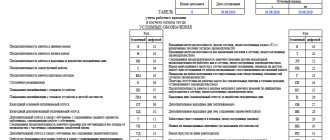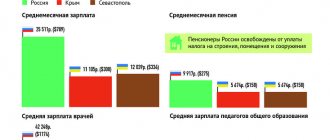In companies with continuously operating production, as well as when serving the population, the administration tries to keep employees out for the maximum number of working days. The Labor Code of the Russian Federation does not prohibit setting the working week at six days. The main limitation is that the total number of hours worked should not exceed 40 hours.
Let's consider how the establishment of a six-day working week occurs in practice, in what cases it is applied, what restrictions and difficulties it can cause in the administration, as well as on the part of the workforce.
Is it legal to install
The concept of a five-day and six-day work week is defined by the Labor Code of the Russian Federation. This means that employees will have to work not five, but six working days. In addition, this approach is used to determine the monthly standard of working hours during shift work.
To legally establish a six-day work week, you need to follow a few simple steps:
- Jointly the administration and the trade union (representatives authorized by the workforce) develop a draft of the company’s internal regulations. The document must contain clear rules about the beginning and end of the working day, lunch breaks, rest time, as well as the categories of employees to whom it applies.
- The daily routine must be submitted to a conference of the labor collective and approved by universal vote. This is how workers and management establish compromise rules of the game. Of course, such a document can be approved by the manager alone, but then all responsibility in the event of controversial issues rests with him alone.
- Such a procedure is introduced as an annex to the company’s collective agreement.
- In the future, each newly hired employee becomes familiar with the daily routine in writing at the time of employment (when he writes an application for employment).
- If it is necessary to change the working week during work, then you will have to warn all employees without exception about this 2 months before the introduction of these innovations, and then proceed according to the scheme proposed above.
Remember, it is legal to establish a six-day week. But this will require going through a formal approval procedure.
The procedure for establishing a 6-day week and the transition from a five-day week
The working hours, which include a six-day or five-day schedule, are an essential working condition that every employee must be familiar with before signing an employment contract.
The specified routine is necessarily fixed in the local acts of the enterprise - the collective labor agreement and the internal labor regulations.
Due to changes in production, it may be necessary to change the work schedule from a five-day to a six-day work week.
The submitted changes are formalized by issuing an order by the head of the organization in accordance with the regulated procedure.
The order, as well as the new schedule and internal labor regulations, must be developed no later than 2 months before the innovation comes into force.
After the order is issued, it should be familiarized with it against signature of each employee who gives written consent to work under the updated regime or refuse to switch to a six-day regime with further termination of the employment contract.
Due to the fact that the amendments may entail mass layoffs, the employment service is notified of the transition to a six-day schedule.
An additional agreement to the employment contract is signed with employees who give written consent to work according to the new schedule.
Sample order
The order to switch to a six-day working week is issued in accordance with the basic requirements of office work.
The submitted document must specify the reason why production is forced to increase the number of working days, and also specify the daily number of working days, days off, and break time.
The specified administrative document is signed by the manager, as well as by officials who are directly affected by the order (on familiarization of employees, on concluding additional agreements, on new payroll calculations, etc.).
order to switch to a six-day week from a five-day week - word.
The concept of a six-day work week
A six-day work week means going to work for 6 days in a row. In this case, you will need to comply with a few simple restrictions:
- Calculation of the duration of work each day must be based on the fact that the total number of hours of work cannot exceed 40 hours per week.
- The day off with this work schedule is Sunday.
- If a six-day week is used for the total calculation of working time, then it is necessary to calculate the number of working hours for the entire accounting period (usually a decade, month, or quarter), and then distribute these hours within the period. Keep in mind that a person must receive a sufficient amount of rest in order to be able to fully perform the functions assigned to him.
- For certain benefit categories (disabled people, minors), the number of working hours per week should be reduced. It will also be necessary to proportionally reduce the duration of actual work for this category of employees.
- Fewer hours of work than the generally accepted norm are also provided for in hazardous and hazardous industries. Here, too, you will need to reduce your daily work hours.
Remember, a “six-day week” means working six days in a row with a reduced daily work rate compared to a five-day week.
What is this according to the Labor Code of the Russian Federation?
Taking into account the specifics of production in legal entities of all forms of ownership, the following operating modes can be established:
- five-day week;
- six-day week;
- shift work.
Irregular work schedules, flexible schedules and shortened hours may also be used.
Labor legislation establishes a general standard work schedule, which is 40 hours a week with 5 working days and 2 days off.
In this case, days off may be:
- combined (Sunday + Saturday or Monday);
- floating (Sunday + any day of the week).
Important! Sunday, regardless of operating hours, is considered a day off.
A six-day week is a work pattern in which workers have one day off per week, subject to a maximum of 40 working hours.
The exact concept of the presented term is not fixed in the Labor Code, however, the legislator puts forward basic requirements that must be present in any working hours:
- length of the working week;
- temporary indications of arrival at work, end of the working day, and breaks;
- weekend.
Is it legal to install?
In accordance with Article 100 of the Labor Code of Russia, employers of all forms of ownership have the right to establish a six-day work schedule at an enterprise (organization), if required by the specifics of production.
A number of other articles (111, Labor Code of the Russian Federation) establish restrictions that are mandatory when using a schedule with 6 working days.
To legally establish a six-day work week, the management of the enterprise should draw up the necessary local documentation, which includes:
- Internal labor regulations;
- Collective labor agreement.
In addition, the work schedule is indicated in individual labor agreements, and when it is implemented in the course of production activities, an appropriate administrative document - an order - should be issued and, on its basis, additional agreements should be concluded to the employees’ labor contracts.
Standard hours according to the Labor Code
The general law on temporary restrictions on attracting workers to work in enterprises (organizations) of any form of ownership is established by the legislator and amounts to 40 hours a week (Article 91 of the Labor Code of Russia).
With a five-day schedule, daily working hours are usually 8 hours.
For workers involved in production for six working days, an additional rule has been established that it is impossible to establish working hours on the eve of holidays and weekends that exceed 5 hours.
Taking into account the above prohibition, employers most often use the following six-day work schedule:
- from Monday to Friday the duration of work is 7 hours daily;
- Saturday – 5 o’clock.
Important! The legislator does not establish restrictions on the use of other schedule schemes, the use of which takes into account the restrictions of the Labor Code.
How are timesheets kept?
It was indicated above that when using a six-day working week in an enterprise (organization), total records of working time should be kept.
Those. all legal entities with a standard, five-day week, when calculating hours worked and calculating wages, use the formulas presented by Regulation No. 588 n, however, similar calculations are not suitable for companies with 6 working days due to the unequal number of Saturdays in each month.
The management of the company appoints a responsible person who is obliged to keep a time sheet.
To accurately calculate wages, the accounting document is filled out in a combined way - using letter designations, as well as indicating the daily number of hours worked by employees.
As a rule, with a six-day period, a weekly accounting period is established, i.e. at the end of each working week, the authorized employee sums up the number of hours worked by the workers and enters the resulting amount in the designated cells.
At the end of the month, all weekly indicators are summed up, which directly affect payroll calculations.
Features compared to the five-day chart
Among the key differences between a six-day and a five-day work week, the following should be highlighted:
- different number of working days;
- the duration of daily work during a “six-day week” is much less than during a “five-day week”;
- One day off is necessarily Sunday. The exception is if you have to work in shifts with cumulative time. Here the sequence of work and rest is regulated by individual schedules;
- a working Saturday during a six-day period must be at least one hour shorter than the other days of work and in total not exceed 5 working hours;
- The start and end of work can be made floating. The main thing is that the total number of hours does not exceed the standard hours generally accepted at the legislative level;
- all restrictions on the number of working hours (for disabled people, minors, taking into account the harmfulness and danger of production) are proportionally observed here;
- for part-time workers, such a mode of work may take less real time (which is included in the payment), due to its reduced daily duration.
Remember that the company has a six-day working regime; the administration is obliged to notify the applicant during the interview so that he has time to weigh all the positive and negative aspects of this regime before employment.
Russians face a 6-day work week, then three days off in a row
Russians will have a six-day working week from February 28 to March 5. Then - three days off. Labor law expert Tatyana Nechaeva recalled this in an interview with RIA Novosti.
She noted that those who have a regular 5/2 schedule will have to work a six-day period. At the same time, Saturday, March 5, will be shortened instead of the pre-holiday Monday. After a long working week, Russians are waiting for three days off - from March 6 to 8 in honor of International Women's Day.
We would like to add that the initiative to reduce the working week to four days was previously discussed. This statement was made by the current Deputy Chairman of the Security Council and ex-President of the Russian Federation Dmitry Medvedev when he was head of government. In the summer of 2022, he announced the need to rethink the approach to organizing labor in the country. And later, in February 2022, Medvedev again voiced the same idea, emphasizing that the coronavirus pandemic made it relevant again, and later proposed conducting a similar experiment in individual regions or companies. However, the Ministry of Labor indicated that there are no prerequisites for abandoning the five-day work week in Russia now; an alternative work mode is being introduced in the country - remote employment.
At the same time, as a recent study by the Rabota.ru service showed, the majority of Russian residents (78%) agree with the statement that the more days off, the better, they have a positive attitude towards reducing working days to four a week.
Standard hours for a six-day week
In terms of the number of hours allocated for work per week, the law makes no exceptions for a six-day working regime - this should be no more than 40 hours. At the same time, depending on individual approaches, as well as technological process conditions, the actual number of hours of weekly work may vary:
- For disabled people - no more than the limit established in the medical report.
- For minors (16 – 18 years old) – up to 7 hours a day.
- Students (15-16 years old) – no more than 5 hours a day.
- Teenagers (14-15 years old) – no more than 4 hours per shift.
- Pupils (14-15 years old) who are simultaneously receiving education and working – should not exceed 2.5 hours.
Production calendar for six days
Using the production calendar, the monthly norm of required work hours for a specific calendar year is calculated. This is done taking into account the following features:
- the number of working days is calculated monthly based on a 40-hour working week;
- Weekends (Sundays) and public holidays are excluded;
- the number of hours on pre-holiday days is reduced;
- the number of pre-holiday and holiday days that can fall into a shift is calculated (for shift work, they must be paid at an increased rate).
Based on the calculations performed, the standard hours are calculated for each month, which will be taken as the basis for calculating wages (standard = 100% of payment). The difference in one direction or the other proportionally increases or decreases the amount of payment.
Women's working week
Duration of work on the eve of non-working holidays and weekends The duration of the working day or shift immediately preceding a non-working holiday is reduced by one hour.
In continuously operating organizations and in certain types of work, where it is impossible to reduce the duration of work (shift) on a pre-holiday day, overtime is compensated by providing the employee with additional rest time or, with the employee’s consent, payment according to the standards established for overtime work. On the eve of the weekend, the duration of work in a six-day work week cannot exceed five hours. Article 96. Work at night Night time is the time from 22:00 to 6:00. The duration of work (shift) at night is reduced by one hour without further work. (edited)
Important
The second day off during a five-day week is established in a collective agreement or in accordance with internal regulations, and Sunday is considered a general day off. According to the rules, the length of the working day before a holiday is reduced by one hour.
According to Article 95 of the Labor Code of the Russian Federation, with a six-day working week, the duration of work on such days cannot exceed five hours.
It is worth noting that if a weekend and a non-working holiday coincide, the first is transferred to the next working day after the holiday.
Exceptions to this rule are the New Year holidays and Christmas (Part 2 of Article 112 of the Labor Code of the Russian Federation). In this case, two days off that coincided with these holidays are transferred to other days in the next calendar year.
Article 320. Shortened working week
Attention
The employer is obliged to establish a part-time working day (shift) or part-time working week at the request of a pregnant woman, one of the parents (guardian, trustee) with a child under the age of fourteen years (a disabled child under the age of eighteen years), as well as a person carrying out caring for a sick family member in accordance with a medical certificate issued in the manner established by federal laws and other regulatory legal acts of the Russian Federation. (as amended by Federal Law No. 90-FZ of June 30, 2006) When working part-time, the employee’s wages are paid in proportion to the time he worked or depending on the amount of work he performed.
Chapter 15. working hours. general provisions
That is, with a six-day work week, March 9, April 30, June 11 and December 31, 2022 remain working days. “New Year holidays” will last from January 1 to January 8.
Working days shortened by one hour for employees with a six-day working week fall on February 22, March 7, April 30, May 8, June 11, November 3, December 31.
Standard hours for a six-day working week According to Article 100 of the Labor Code of the Russian Federation, one day off is established for enterprises and organizations with a six-day working week.
The general day off is Sunday (Article 111 of the Labor Code of the Russian Federation). The normal duration of a six-day working week, like a five-day one, cannot be more than 40 hours (Article 91 of the Labor Code of the Russian Federation).
Examples of employee earnings calculations
The earnings of workers in six diaries are calculated using the following universal formula:
Salary = (Salary x FVR) / NVR, where
ZP – salary;
FVR – actual operating time;
NVR – standard operating time.
As an example, if an employee has a salary of 10,000 rubles, the monthly working hours are 160 hours, and he worked only 150 hours, his salary will be equal to:
Salary = (10,000 x 150) / 160 = 9,375 rubles.
If, in addition to salary, an employee is entitled to other types of additional payments, allowances, bonuses, charges, then all this is simply included instead of the “salary” item, and the calculation principle itself remains the same (unless otherwise established by the collective agreement). An exception here may be fixed payments, which are not calculated proportionally. For example, a one-time bonus of 5,000 rubles will be paid in this amount regardless of the number of hours worked.






